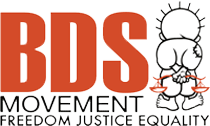Protecting Yourself Against Police Harassment & Abuse
Do you want to know your rights against police harassment?
Have you been abused and you want to prove police harassment, get a lawyer and file charges?
If YES, here are 16 sure ways to eventually put an end to most police harassment!
The media and online forums are full with stories of individuals that have been victimized by the police. Today, the issue of police harassment and abuse is no longer news. Now what can you do to stop police harassment and abuse? Read this article!
The police are empowered by the state to enforce the law, protect lives and property, and limit civil disorder; while abiding by the law themselves.
But ironically, in many places today, innocent civilians have fallen victim to various forms of misconduct by the police, misconduct that can go beyond the boundaries of their job and conduct harassing behavior. It’s only unfortunate that these victims are being terrorized by the same people who should be protecting them in the first place.
* And always remember: From the very onset of your interaction with any police officers, ask them if you are being detained, what for, and inform them that you will not talk about whatever you are being detained for without the presence of an attorney.
No matter how afraid or confused you may feel, stick to this rule. The Police are not your advocate or your friend either before or after you have been detained.
What is Police Harassment?
An act of police harassment can be described as a conduct that has no legitimate law enforcement purpose and which may cause a victim to suffer fear or emotional distress.
Types of Police Harrassment
Police misconduct, which includes harassment and abuse of civilians, refers to any inappropriate action taken by police officers in connection with their duties.
Examples of such inappropriate actions include 1) abuse of power, 2) lying against the accused even when under oath, 3) selective enforcement, 4) false arrest, 5) falsified evidence, 6) intimidation, 7) false imprisonment, 8) police brutality, 9) racial profiling, 10) police corruption, 11) surveillance abuse, etc. and so on.
Police harassment also involves an attempt to coerce someone into admitting complicity in a crime, or by threatening or intimidating a person to obtain information.
Police harassment or misconduct can lead to a miscarriage of justice and sometimes involves discrimination and or illegal motives of discrimination combined as obstruction of justice.
Police harassment can take a variety of forms and can involve diverse victims.
Some common examples of police harassment include: 1) Illegal spying or placing certain people under surveillance, 2) racial or ethnic profiling, 3) use of brute or excessive force, 4) making racist, sexist or homophobic comments, 5) illegal detention, 6) illegal search and seizure, and so on.
If you have been a victim of police harassment in the past, you would agree that it’s always a frightening and unsettling experience, which makes you feel helpless. And if you don’t do something to stop it, chances are you will fall victim again and again. Below are tips on how you can stop police harassment and abuse:
Don't Be A Victim: Ways to Stop Police Harassment & Abuse:
1. Understand your rights
If you don’t understand your rights as a civilian, you will be forced to believe that many wrongdoings by the police are right. And in that case, you won’t even know that you are being victimized. You can visit the nearest police department or contact a well-known police officer to make enquiry about citizen’s rights. Most officers are happy to let you know your rights as a civilian.
Alternatively, and more specifically, always contact an attorney to make enquiry or get a copy of the constitution or criminal law code for your state and learn what your rights are.
Equipping yourself with knowledge of what a police officer can do and cannot do to you is your first line of defense against subsequent episodes of police harassment and abuse.
2. Get yourself bailed if you were detained
If you have been a victim of police harassment and you were subsequently arrested during the proceedings, the first thing you have to do before going ahead to prove your case is to get yourself released on bail.
This part may require you to just sign an agreement that you would be available for all your court sittings. This type of bail is generally free especially - if you are a first offender.
You can equally work with a criminal defense attorney to affect your release if one was appointed to you. You also may be able to only post a percentage of the bail - often 10% - to secure your release.
Take whichever is the best option available to you in order to be free.
Know that it is easier to prove your case from the outside than while incarcerated.
How to Prove Police Harassment
For you to bring a case against the police and get justice, you should be able to prove your case beyond every reasonable doubt. These are ways you can put up a water-tight case against the police.
3. Put the incident down on paper
Because the human brain cannot be trusted to remember the minutest detail of an incident over a period of time, you need to write down what took place between you and the police officer on paper.
You must record everything you remember about the incident. Even if you feel disorganized or disoriented after the encounter, you need to put down as much details as you can remember.
But while you are straining to remember the details of the event, you should endeavor not misrepresent facts as it can be used against you in court. Remember the police will also have their own records.
4. If you had injuries, take photos of them
If you scuffled with the police, which led to any injuries, you need to take photographs of any injuries so that they can be used as evidence.
Note: These photographs need to be taken as soon as possible in all their gory nature. You may also have to examine yourself hours and days after as well because some marks, such as bruises, may only appear hours later.
If you were arrested, it may be difficult to take photos of your injuries. In that case, do what you can to write down a description of any marks, cuts, or bruises, and where they are located on your body.
5. Get medical attention
If you had sustained any injuries, you need to get medical attention at this point after you may have documented your injuries. You also need to document every kind of treatment you were given and make copies of any reports or bills you were given. These copies have to be saved to be tendered as evidence.
6. File a complaint to at the nearest police department
Visit your nearest police department to report any cases of harassment by an officer. You call also dial 911 (or the emergency number for your state or country) if you think it’s a matter of emergency.
Better yet, visit the website of your local police department and lodge your complaints using the section meant for police complaints.
Whichever option you choose, follow the right procedures so that your complaint would be properly handled.
If your local police agency does not have a written complaint form or tries to make you report it verbally to the "desk officer", that police department is out of compliance.
Ask to talk to the Chief of Police, talk to your local city council representative, or contact either your local newspaper or the closest TV station to report such non-compliance.
It's important to know that there is a general view that police officers have a code of silence - or "blue wall" - that prevents them from seeing and questioning each other’s act of misconduct.
Even though the police has called this a myth and has tried to debunk it several times, a survey conducted in 2005 revealed that this code does really exists.
So, don’t be surprised if the same officer continues to harass you even after you have reported him. And make sure you documents such harassment.
7. Establish and document your evidences
If a police officer is still harassing you even after you have lodged a complaint, here’s what you should do: Wait patiently for the next time he harasses you, and try to make some convincing evidence against him.
You can always have someone with you whenever you anticipate such misconduct so that the person can be a witness. You can also have a small recording device in your pocket to capture the officer’s words.
After gathering your evidences, try to replicate them. That is, you should produce many copies of your evidences.
This is necessary because the police are notorious for destroying evidences kept against them. Also, document the details of the harassment scenario, such as the date, time, and venue.
8. Report the second time
So that you will be double sure that the police is not deliberately sweeping your complaint under the floor, you can complain a second time and see if there will be any positive changes. This time, show them your evidences.
Remember to produce many copies of your evidences before turning them in.
9. Put together your witnesses
You need witnesses to prove your case, and you should be very meticulous when going about this. Anyone who was in the area and saw what happened is your witness. If you can, try to talk to them after the incident to be sure of what they saw
If you were arrested immediately, you may not get the chance to talk to any witnesses. However, if you were with someone when you were arrested, they may be able to get contact information from the witnesses for you so you can meet them later.
10. Keep your physical evidence safe
Depending on the kind of encounter you had with the police, you may have to some physical evidence to show for it. This kind of evidence may include torn clothing, blood stains on your clothing or a dented car. These items should be preserved for the court.
Some physical evidence because of their nature can be impossible to preserve, and can’t be presented in court. For example, if the police broke down your front door, you would need to repair the damage so your home would be secure. You can only take photos of the door before you get it repaired, because you can use the pictures for evidence.
Get a Lawyer to Help You Get Justice
11. Look for a competent civil rights attorney
Make sure you never discuss any generalities or details about a false or real crime while being interrogated by a police department. Police are not there to be your advocate or a friend.
That said, because of the nature of the case, very few lawyers would be willing to take the case, so you have to start you search for an attorney pretty early so as to meet up with deadlines.
If you have criminal charges pending, don’t start your civil lawsuit for police misconduct until after the criminal proceedings are concluded. Filing early only gives the police more time to build their case against you.
There exists directories that can enable you find attorneys that are able to take up your police misconduct case. One of them is the National Police Accountability Project. You may not get exactly what you are looking for here, but it is a great jumping off point.
12. Research the attorneys
Set your sights on about three to four potential attorneys and conduct research on them to see if they have the kind of qualifications and experience you desire. Much of the information you need is available on their website, or through the website of your state’s bar association.
Again, many civil rights attorneys offer a free initial consultation. You can use this to your advantage to meet with several attorneys. Having several to choose from can ensure that you get the best attorney to fight for you.
Ask each attorney for details about their experience representing clients like you in police misconduct cases. Find out how many cases they’ve tried, and how many they’ve won. You equally need to note how passionate they are about your case and what chances they think you have in court.
13. Discuss fees with your attorney and find out if you can afford them
When you have settled on the attorney that you think is perfect for your case, you now have to discuss their fees and payment policy to see if you can afford them. Your attorney can be willing to take police misconduct cases on a contingency fee, meaning that he or she will get paid only if you win. Many attorneys who take these types of cases work on a contingency basis.
Other attorneys may require that you pay them upfront because of the unpredictability of police misconduct cases. Some civil rights attorneys also offer sliding-scale fee arrangements, where what you pay is based on the income and assets you have available.
Your agreement with the fee structure should be based on how affordable the attorney is and on the reputation they are riding on.
If you can afford it, you may want to pay out more than you intended if you are quite convinced that a particular attorney would get you the victory you seek.
How to File Charges Against the Police
This step cannot begin until all criminal charges and civil actions have been resolved. As have been previously said, prematurely filing a police misconduct report will hurt your chances in court by revealing too much information to the police. But if you were not charged with a crime, you can go ahead and file the charge.
14. Find out which "right" the officer contravened
Under the law, police officers have a defense known as “qualified immunity.” If you can’t overcome this defense, you aren’t even entitled to sue the officer.
Showing that the police officer violated one of your Constitutional rights is the first part of overcoming this defense.
Many police misconduct cases are based on the 4th Amendment, which protects you from unreasonable search and seizure. You should be able to prove that your case falls within this jurisdiction so you can be eligible to go to court.
15. File a lawsuit
If you think your complaints have yielded no results, then contact a qualified lawyer. Start by asking if there are further options that you can adopt in order to seek redress. If there are no other options, then pressing formal charges should be your next step.
On a final note, always keep in mind that the police are not immune to the law, and they must abide by both the laws that bind their profession and those that protect civilians.
You should always stand up to hold them accountable whenever they exceed their boundaries by harassing or abusing you.
16. You should be able to prove that the right is established
Here is where you need the help of your attorney.
He or she should be able to prove that the right you’re asserting was clearly established by court precedent. While you could say that the 4th Amendment protects you from unreasonable search and seizure, that is too general for these purposes. It must be a particular right, and must be so established and well-known that a reasonable police officer would understand that what he was doing was violating that right.
Your attorney can go ahead to dig out other cases where the courts found a violation of someone’s constitutional rights under circumstances identical or strongly analogous to your situation.
Again, your attorney should be able to prove that the officer acted beyond a clearly reasonable call of duty.
For example, if you are arguing excessive force, you would need to prove that the officer used force that was so excessive that any reasonable officer would agree with you that it was excessive and unnecessary.
Understand what you are fighting for!
Each victim has a unique path to recovery from police misconduct.
Some victims simply seek an apology from the police force, and compensation for all legal fees incurred. Other abuse victims want actions to be taken against the offending officer.
Victims need to think about their goals before taking an action so as not to be disappointed at the end.
A lawsuit will demand monetary compensation but may not ensure any direct consequences to the offending officer.
Ironically, apologies are most times even harder to obtain.
Therefore, victims should consult with an attorney and make sure any civil or disciplinary actions taken are in line with the victim’s personal goals and recovery process.
www.ACLU.org
















